What is the National Association of Underwater Instructors (NAUI)?
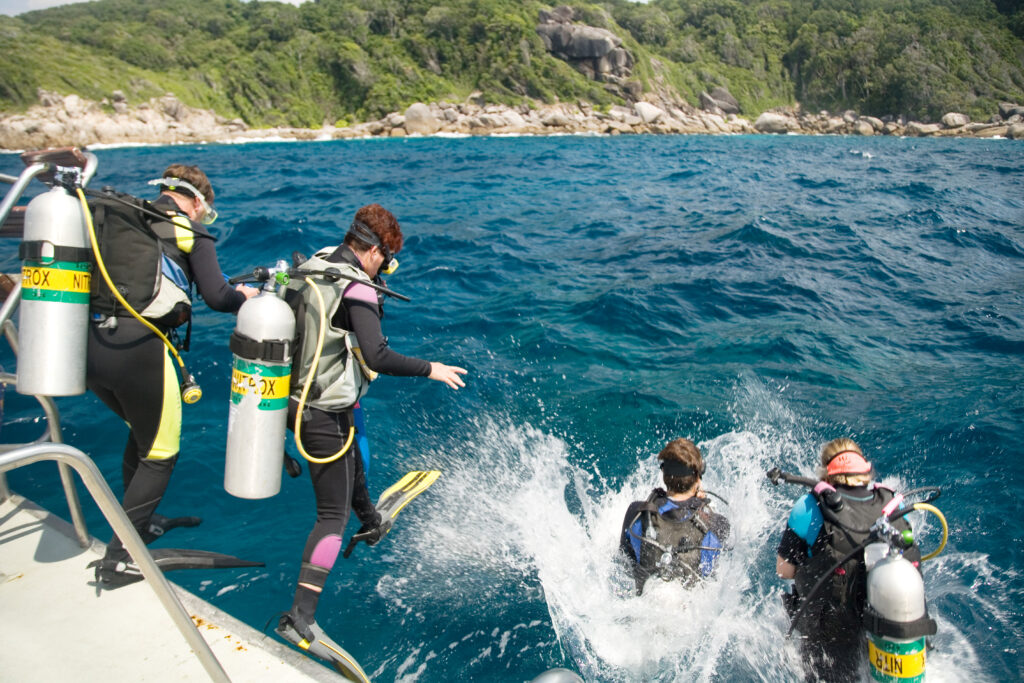
The National Association of Underwater Instructors (NAUI) is a globally recognized non-profit organization dedicated to scuba diving education and training. Established in 1959, NAUI has been instrumental in shaping the standards and practices of the diving industry, promoting safety, education, and environmental awareness. With a commitment to providing high-quality training and fostering a community of well-informed and responsible divers, NAUI has become one of the most respected certifying agencies in the scuba diving world.
What is Scuba Schools International (SSI)?
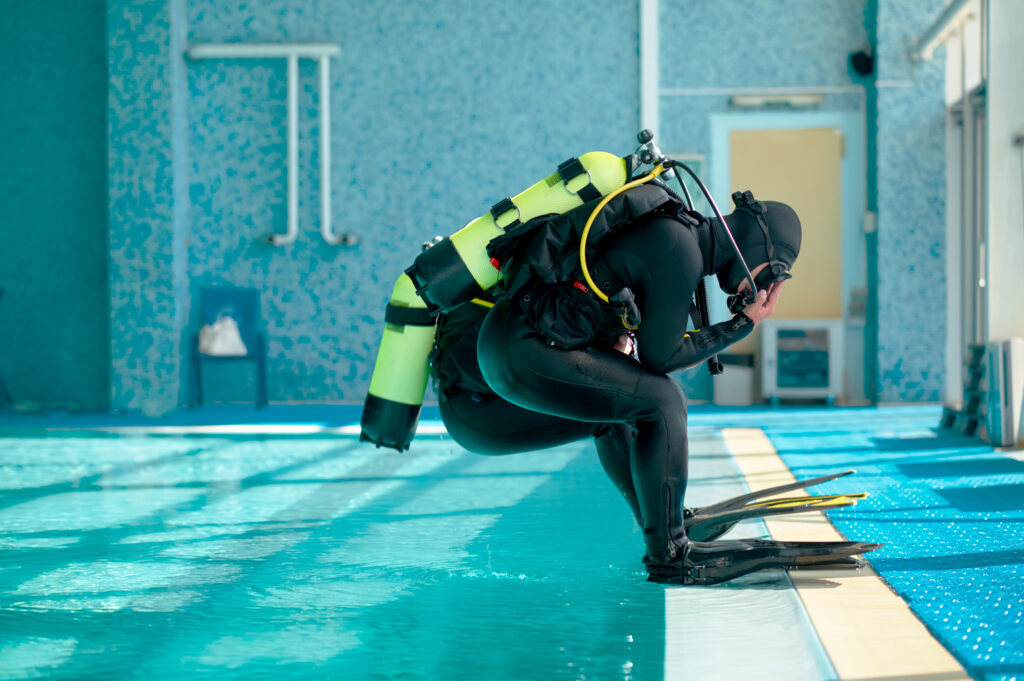
Scuba Schools International (SSI) is one of the leading organizations in the scuba diving industry, recognized globally for its comprehensive training programs and dedication to safety. Founded in 1970, SSI has grown to become a trusted name among diving enthusiasts and professionals alike. With a commitment to providing high-quality education and ensuring the best possible diving experiences, SSI has established itself as a cornerstone of the scuba diving community. This entry explores SSI’s history, mission, certification programs, training methodologies, global presence, safety standards, environmental initiatives, and community feedback to provide a thorough understanding of its impact and contributions to the scuba diving world.
What is Cavern Diving?

Cavern diving is a distinct form of scuba diving that involves exploring natural underwater caverns, allowing divers to experience the beauty and mystery of submerged cave systems. Unlike cave diving, where divers venture deep into the labyrinthine recesses of underwater cave networks, cavern diving stays within the sunlit zone, offering a safer and more controlled environment. Cavern divers do not stray far from the surface, ensuring they remain within a short distance of an emergency exit point. This sport attracts those fascinated by unique underwater formations, offering an adventurous alternative to traditional open-water diving.
What is a Scuba Diver?
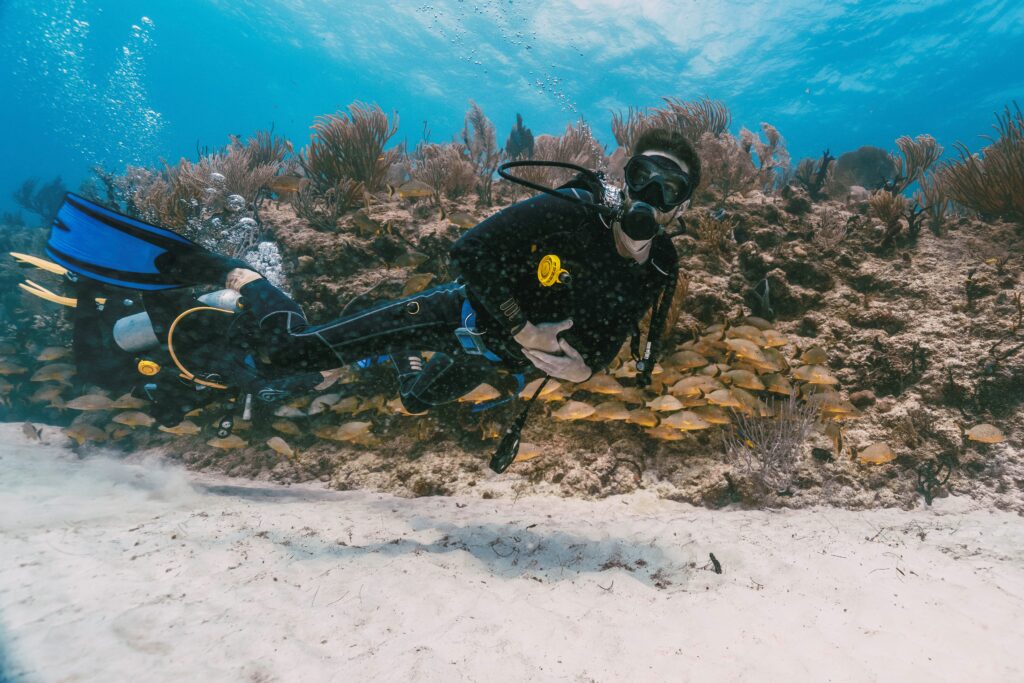
What is a Scuba Diver? A scuba diver is a person who engages in the recreational or professional activity of swimming underwater using SCUBA equipment. The term “scuba” is an acronym for “self-contained underwater breathing apparatus,” which allows scuba divers to breathe comfortably beneath the water’s surface while exploring the aquatic world at their leisure. […]
What is Scuba Diving?

Scuba diving is a recreational and professional activity where individuals explore underwater environments using self-contained underwater breathing apparatus (SCUBA) equipment. This equipment allows divers to stay underwater for extended periods, enabling them to experience marine life, shipwrecks, caves, and other submerged wonders. The ability to explore these otherwise inaccessible areas has made scuba diving a popular pursuit for adventure enthusiasts, marine biologists, and professional divers alike. Since its modern development in the 20th century, scuba diving has attracted millions of people globally, offering a unique blend of excitement, discovery, and tranquility beneath the waves.
What is it to “Call a Dive” When Scuba Diving?

In scuba diving, the term “call a dive” refers to the decision to end a dive and return to the surface. This decision is a critical aspect of dive safety and can be made by the diver, their buddy, or the dive leader. The rationale for calling a dive can vary from diver safety concerns to environmental changes, but it always centers on ensuring the well-being of all involved. By understanding when and why to call a dive, divers can prevent potentially dangerous situations and avoid unnecessary risks.
What is the Maximum Operating Depth?
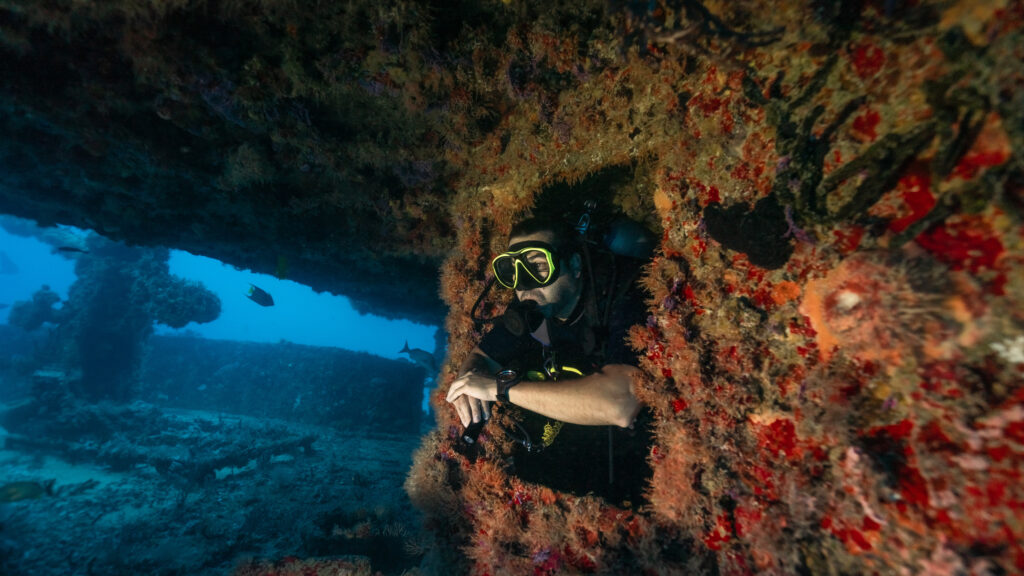
Maximum Operating Depth (MOD) is a critical concept in the field of scuba diving. It refers to the deepest depth at which a particular gas mixture can be used safely without the diver experiencing oxygen toxicity. Understanding and adhering to the MOD is essential for ensuring diver safety and preventing potentially life-threatening conditions. MOD varies depending on the gas mixture being used and is influenced by the partial pressure of oxygen within the breathing gas. By comprehending the significance of MOD, divers can plan their underwater excursions more effectively and reduce the risks associated with diving to greater depths.
What is a Dive Operator?
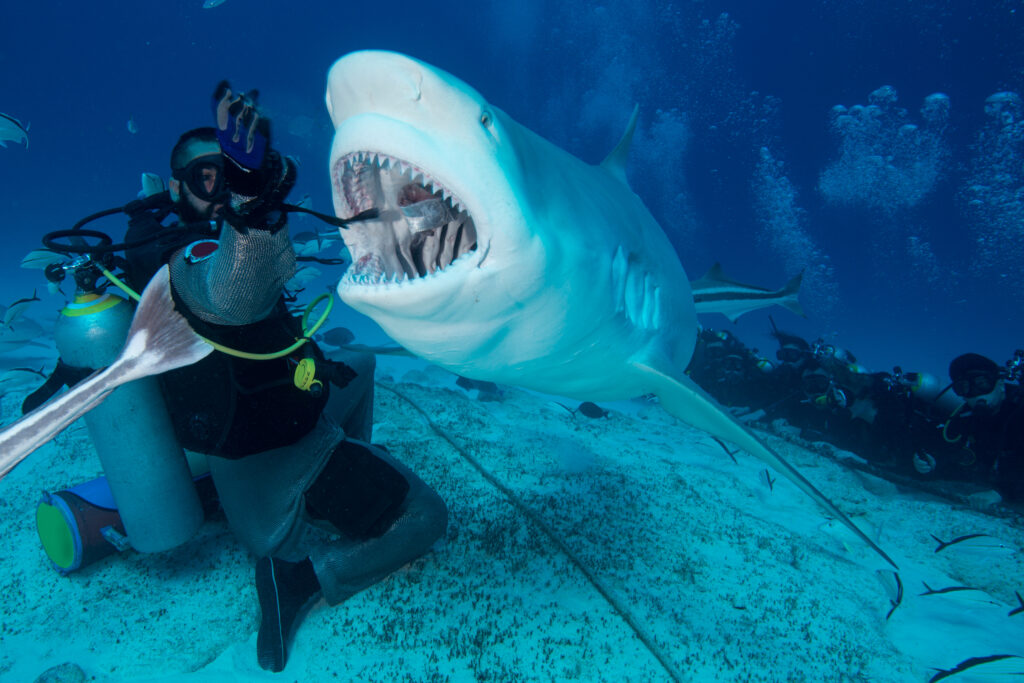
A dive operator is a professional entity responsible for organizing and facilitating scuba diving activities for individuals and groups. Dive operators play a crucial role in ensuring safe, enjoyable, and educational experiences for both novice and experienced divers. They provide a wide range of services, including equipment rental, guided dives, training courses, and logistical support for dive trips. As central figures in the scuba diving industry, dive operators are essential for maintaining high standards of safety and environmental stewardship. Their expertise and resources enable divers to access and enjoy underwater environments that might otherwise be difficult to reach or navigate.
What is a Divemaster?
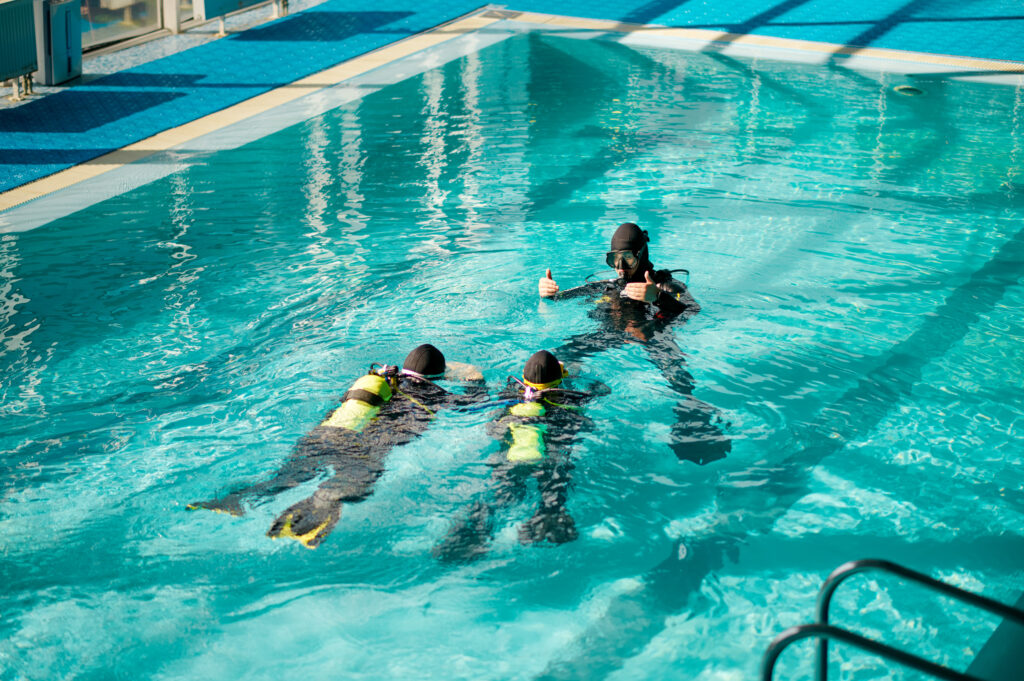
A divemaster, also known as a dive guide or dive leader, is a highly skilled and experienced professional recreational diver who possesses the knowledge, training, and certification to lead and supervise less experienced divers on underwater excursions. The divemaster plays a critical role in ensuring the safety and enjoyment of all participants, while also upholding the principles of responsible diving and environmental stewardship.
What is Octopus Breathing?
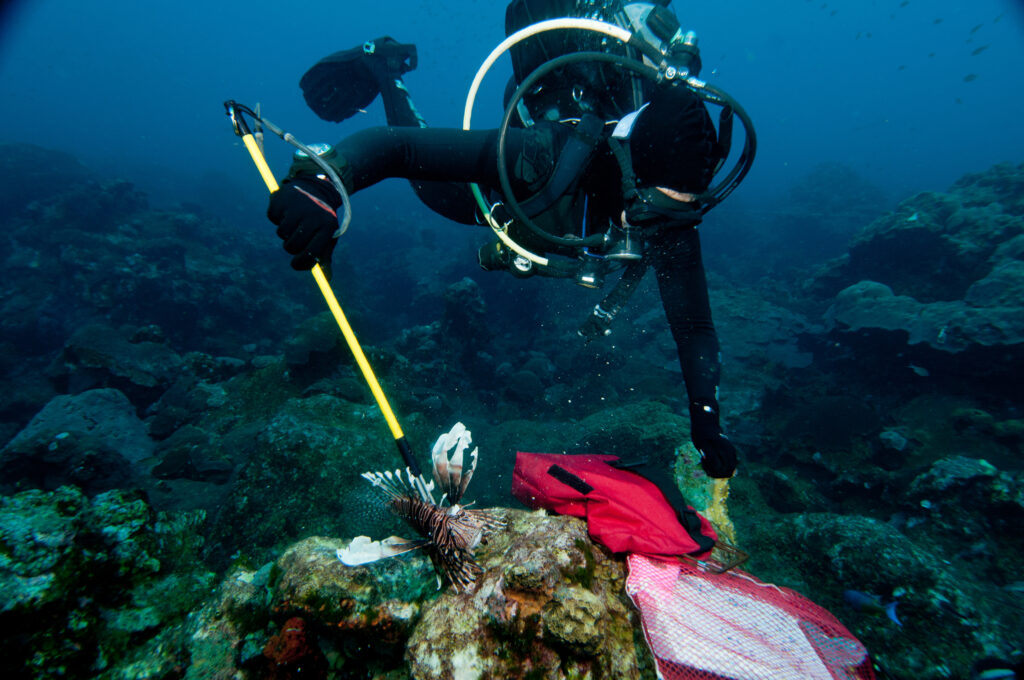
Octopus breathing is a critical concept in scuba diving that refers to the use of a secondary breathing apparatus, known as an “octopus,” which allows divers to share air in emergency situations. This technique is an integral part of dive safety protocols, providing a reliable method for a diver to offer their breathing gas to a buddy who may have run out of air or encountered a malfunction with their primary regulator. The octopus system is designed to be easily accessible, typically color-coded, and positioned within reach to ensure quick deployment when needed.
